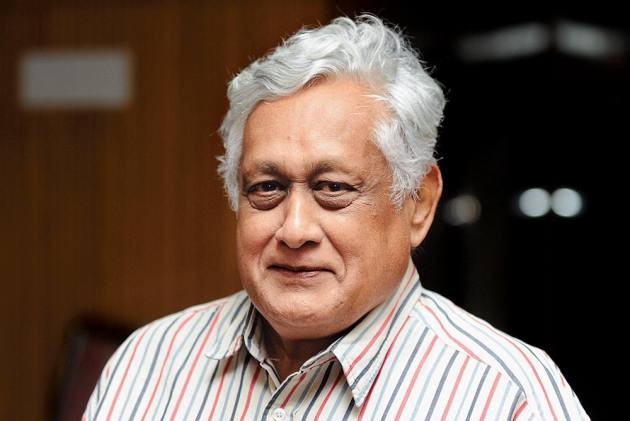
A young man in his mid-20s gets offered professorship after obtaining his PhD research. Excited with what is a testament to his talent, he runs to his father with the piece of news. “Perfect, but you are totally unfit for it, continue with your research. Don’t confuse status with knowledge,” says the father offering a timely reality check. Today, that young boy is one of the most loved academicians, not only at Jindal Global University but in the country as well.
Dr. Shiv Visvanathan is a sum of his experiences, abundance of knowledge, humility, gentle and calm demeanor. He is the Professor and Vice Dean at JGU, and also holds the position of Executive Director, Centre for the Study of Knowledge System. That’s the ‘status quo’ for today, but his vast wisdom and influence on learning, is far greater. His work has explored the question of alternatives as a dialogue between the West and India. His writings have explored the psychological, cultural and political relations of science; the growing control of society by technology; and linkages between scientific establishment and authoritarian structures of state. He holds an adjunct Professorship at Raman Research Institute, Bangalore. He was Henry Luce Professor at Smith College Massachusetts. He was also visiting Professor at Stanford University and Center for Cultural Studies, Goldsmith College, University of London, Arizona State University and some other Indian universities. Himself trained by names like C.V. Seshadri, Ramchandra Gandhi, and Ashis Nandy, he teaches his students “to dream”. He is the dreamer, an inspiration in our midst.

Learning that shaped the mind
Dr. Visvanathan is a trained social anthropologist with a PhD from the University of Delhi. Today a renowned social scientist, who coined the term ‘cognitive justice’, highly acclaimed author and academic, he has gone places, literally. But the seeds of the genius mind were sown during his days as a student. Interestingly he doesn’t refer to himself as a law student. He almost gleefully admits that his Vice Chancellor once described him jokingly as a law and order problem rather than a law student. But you know this was not just another rebel student when he shares his thoughts about Law. “I think what law does is that it gives you a certain sense of an enlightened vision of justice of the rituals involved in justice. There is a gap between law and justice, which every law department and every person committed to truth has to bridge,” he says judiciously.
Experiences maketh the man, the academic, the thinker
As he makes his point about Law, Dr. Visvanathan reminisces about the time he worked on the Truth Commission in South Africa and what he learned from Desmond Tutu. The Nobel Peace Prize winner reminded him that law can speak several languages. The Truth Commission in Zulu and in English had different meanings. “Law is a set of dialects under a universal notion of justice. So, we’re not working only with an Anglo-Saxon concept of law. We’re now looking for a more cosmopolitan view of justice. Law is going to translate the vision of the world, law is going to translate the new vision of justice, law is going to show you that methodologies can be creative guarantees to the rituals of justice,” he declares.
His brush with Desmond Tutu is just one of the many terrific experiences in his life. He led one of the first teams to the Bhopal gas disaster, he worked on UN University project for security and militarization, he spent 10 years investigating the Gujarat riots, has investigated the history of corruption in India, was a consultant for the Carnegie Commission and has taught at reputed institutes all over the world. He is the author of Organizing for Science (OUP, Delhi, 1985), A Carnival for Science (OUP, Delhi, 1997), Theatres of Democracy (OUP, Delhi, 1997) and co-editor of Foulplay: Chronicles of Corruption, Theaters of Democracy (2016). The list is endless, as his quest for learning as well as teaching, sharing the knowledge.

Influences that molded the inspiring educator
Dr. Visvanathan believes he was privileged to be taught by C.V. Seshadri, one of the greatest energy experts of the country. He recounts his words, ‘If you’re a teacher, your best success is when your student takes over and you’re eliminated’. According to him, “That is merit, that’s succession. That’s the dream of scholarship that you create a community of students who can actually bear your message without your overbearing presence.” He also mentions the influences of storytellers like Ramchandra Gandhi and Ashish Nandy. He asserts that for them the anecdote is a fable, it’s a story, it’s a moral and it’s also a theory. It’s probably why he is against today’s idea of ‘downloadable knowledge’. “Knowledge is something you acquire, and you work through it, you dream it. So, I teach my students to dream and not to be afraid to be stupid when they make mistakes. In fact, I give the highest marks for the most interesting research mistake in my class,” he says.
Unusual yes, unsurprising, definitely not. In fact, that’s something you expect from this unique genius, who smudges boundaries, broadens horizons. He can seamlessly switch subjects; write about Theatre of Democracy and Amitabh Bachchan, who in turn has written him a long letter. He talks of Descartes and Galileo as he explains why he prefers academic integrity over academic rigor. “Rigor is important in certain fields but first is the act of imagination. You invent, you create, you dream, you distort, and you make mistakes. And then when you clear up, you’ve two things: beauty and truth between and rigor. Rigor is never alone.” That’s just a peek into his precious and powerful mind that students of JGU get to experience and be mentored by on campus.
